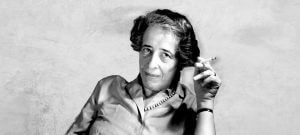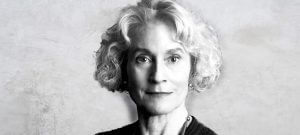
Seven Female Philosophers You Should Know About
Big thinkerRelationships
BY The Ethics Centre 8 MAR 2021
There’s no question that philosophy is littered with the workings of male minds. What’s less known are the many brilliant women whose contributions throughout history have shaped our world today. Here are seven female philosophers to celebrate this International Women’s Day.

Mary Wollstonecraft
Mary Wollstonecraft (1759-1797) was a writer, philosopher and social activist. Wollstonecraft’s manifesto is 225+ years old, but far from obsolete. She passionately articulated for women to have equal rights to men in A Vindication of the Rights of Woman in 1792, a century before the term feminism was coined. In a social system where women were “kept in ignorance” by the socioeconomic necessity of marriage and a lack of formal education, Wollstonecraft advocated for a free national schooling system where girls and boys would be taught together. The word patriarchy was not available to Wollstonecraft, yet she argued men were invested in maintaining a society where they held power and excluded women.
“My own sex, I hope, will excuse me, if I treat them like rational creatures, instead of flattering their fascinating graces, and viewing them as if they were in a state of perpetual childhood, unable to stand alone.”
bell hooks
An outspoken professor, author, activist and cultural critic, bell hooks (1952 – 2021) work explores the connections between race, gender, and class. “Ain’t I A Woman” laid the groundwork for hooks progressive feminist theory, linking historical evidence of the sexism endured by black female slaves to its long-standing legacy on black women today. Born Gloria Watkins, hooks adopted her pen name after her late grandmother, wanting it written in lower case to shift the attention from her identity to her ideas. Now 38 years on from its original publication, her work remains radically relevant to the world today.
“A devaluation of black womanhood occurred as a result of the sexual exploitation of black women during slavery that has not altered in the course of hundreds of years.”
Simone De Beauvoir
Simone de Beauvoir (1908-1986) was a French author, feminist and existential philosopher. She lived an unconventional life as a working experiment of her ideas. As an existentialist, de Beauvoir believed in living authentically and argued that people must choose for themselves who they want to be and how they want to live. The more pressure society – and other people – place on you, the harder it is to make that authentic choice, particularly for women. In her best-known work, ‘The Second Sex’ she famously posed that women are not born, they are made. Meaning that there is no essential definition of womanhood, rather social norms work hard to force them into a notion of femininity
“Man is defined as a human being and woman as a female – whenever she behaves as a human being she is said to imitate the male.”

Shulamith Firestone
Shulamith Firestone (1945-2012) was a writer, artist, and feminist whose book, The Dialectic of Sex, argued the structure of the biological family was primarily to blame for the oppression of women. Firestone proposed that over the course of human history, society itself had come to mirror the structure of the biological family and was the source from which all other inequalities developed. With a radical and uncompromising vision, she advocated for the development of reproductive technologies that would free women from the responsibilities of childrearing, dismantle the hierarchy of family life and set the foundations for a truly egalitarian society.
“the end goal of feminist revolution must be… not just the elimination of male privilege, but of the sex distinction itself.”

Hannah Arendt
Johannah “Hannah” Arendt (1906 – 1975) was a German Jewish political philosopher who left life under the Nazi regime for nearby European countries before settling in the United States. Informed by the two world wars she lived through, her reflections on totalitarianism, evil, and labour have been influential for decades. Arendt’s most well-known idea is “the banality of evil”, explored in 1963 in a piece for The New Yorker that covered the trial of a Nazi bureaucrat, Adolf Eichmann. Following the election of Donald Trump, sales of Arendt’s book The Origins of Totalitarianism, already one of the most important works of the 20th century, increased by 1600%.
“The sad truth is that most evil is done by people who never make up their minds to be good or evil.”

Martha Nussbaum
Martha Nussbaum (1947-present) is one of the world’s most influential living moral philosophers, trailblazing in her philosophical advocacy for religious tolerance, feminism and the merits of emotions. Nussbaum believes the ethical life is about vulnerability and embracing uncertainty. She famously argued for the place of emotions within politics, saying democracy simply doesn’t work without love and compassion. In ‘Not for Profit: Why Democracy Needs the Humanities’ Nussbaum took on the education system, proposing that its role is not to produce an economically productive and useful citizen, but people who are imaginative, emotionally intelligent and compassionate.
“To be a good human being is to have a kind of openness to the world, an ability to trust uncertain things beyond your own control.”

Simone Weil
Simone Weil (1909–1943) was a Philosopher, Christian mystic and political activist in the French Resistance, who TS Eliot called a “genius akin to that of the saints”. Weil gave attention to working conditions and is known to have given up a life of privileged to work in factories. This experience shaped her writings, which consider the relationship between individual and state, the nature of knowledge, the spiritual shortcomings of industrialism and suffering as key to the human condition. In The Need for Roots, Weil argued that society suffered an ‘uprootedness’, a deep malaise in the human condition due to a lack of connectedness to past, land, community and spirituality.
“To be rooted is perhaps the most important and least recognized need of the human soul.”
Ethics in your inbox.
Get the latest inspiration, intelligence, events & more.
By signing up you agree to our privacy policy
You might be interested in…
Opinion + Analysis
Relationships
Elf on the Shelf is a fun and festive way to teach your child to submit to the surveillance state
Opinion + Analysis
Business + Leadership, Relationships, Science + Technology
Are we ready for the world to come?
Opinion + Analysis
Relationships
Why listening to people we disagree with can expand our worldview
Opinion + Analysis
Relationships






